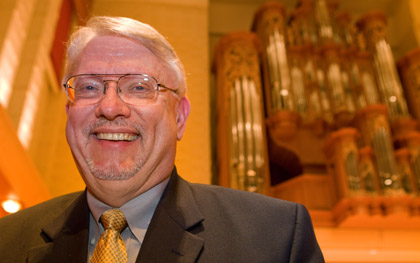Page 270 • (12,657 results in 1.593 seconds)
-
with other students. Currently, support for this program comes from the National Science Foundation (NSF Grant # CHE-1460720). The 10 week summer program lasts from May 28-July 30 and includes a $450/week stipend with a $500 travel allowance, on-campus housing, and a meal allowance. This information and an on-line application form can also be found on the web at: http://www.chem.indiana.edu/reu/ The deadline for applications is January 15, 2016. Any questions can be sent to: REU Program Director
-
a number of suggested small changes, activities, and research paper alternatives that we hope can help you incorporate IL habits of mind into your courses. To begin the process of planning for a library instruction session, please write to Roberto Arteaga (rarteaga@plu.edu) and provide the following details: Course information What would you like your students to get out of the session? Describe anything that you want your students to be able to do, practice, and/or understand as a result of
-
staff about the 2006 campaign to determine what strategies worked and what barriers still exist. Using the survey results, she’ll develop a marketing strategy to inform employees about the campaign and further recycling efforts. Additionally, Buchholz will examine the Environmental Services surplus program and develop an advertising campaign to increase awareness. The surplus program collects unused items from around campus, such as desks, chairs and couches, and sells them at regular garage sales
-
valid, regularly updated anti-virus program. (See the anti-virus web page at: https://www.plu.edu/antivirus); Maintain effective security practices on the personally owned computer system to avoid intentional or unintentional activities from or to any network connection. Included, but not limited to, are attempts to monitor other network connections, hijack connections, spread viruses, spyware, or any other activity which may impact the overall security of the network; and Obtain authorization prior
-
of Professional Studies painting,sculpture,web design,ceramics,pottery,photography,printmaking,art Anthropology Anthropology Program Website minor Undergraduate College of Liberal Studies diversity,humanity,medicine DISCOVER About Calendar Campus Map Land Acknowledgement Careers at PLU Lute Locker PLANNING Student Payments Textbooks Make a Gift Conference Planning RESOURCES Privacy Non-Discrimination Policy Accessibility Emergency Procedures Mailing Policy & Procedures Consumer Information Flag
-
park and observed free-living chimpanzees. She also spent several days at the institute talking to the staff and learning about the conservation strategy. On one of the last days of her visit, she toured villages in the area, talking to the villagers about how they interact with the conservation project. Along with Webb, five other Lutes – Andy Guinn, Caroline Gonia, Brian Wehmhoefer, Meredith Forrey and Jessica Baumer – studied in Tanzania this fall. Four students from St. Olaf and three from
-

emerged in the new millennium with additional focus and fiscal discipline. Long-range planning and short-term initiatives were instituted, the former producing planning documents titled PLU 2000 and PLU 2010, the latter involving annual creation, monitoring and assessment of shorter-term goals. The university is currently in the first year of a three-year, pan-university cycle to produce the next planning document, PLU 2020. The last decade has seen strengthening of our three institutional hallmarks
-
. Beyond Campus Life, PLU is an incredibly collaborative campus that provides opportunities for professional staff to gain a wide variety of professional experiences. Below are just a few examples of ways in which professional staff have collaborated across the institution. Opportunities within Campus Life: Planning Annual Collaborative Student Leader Training and ongoing Professional Development Co-Creating and implementing sessions for LUTE Welcome, PLU’s New Student Orientation Planning and
-

emerged in the new millennium with additional focus and fiscal discipline. Long-range planning and short-term initiatives were instituted, the former producing planning documents titled PLU 2000 and PLU 2010, the latter involving annual creation, monitoring and assessment of shorter-term goals. The university is currently in the first year of a three-year, pan-university cycle to produce the next planning document, PLU 2020. The last decade has seen strengthening of our three institutional hallmarks
-
. Preparation for provision of quality cost-effective care, participation in the design and implementation of care, and assumption of the leadership role in managing resources. (3) (3 credits didactic) GNUR 527 : Evaluation & Outcomes Research Preparation for the critique and use of new knowledge to provide, change, and evaluate advanced nursing practice focused on client-centered, clinically-demonstrable care. (3) (3 credits didactic) GNUR 530 : Resource Management Management of resources in the planning
Do you have any feedback for us? If so, feel free to use our Feedback Form.


